Muslim
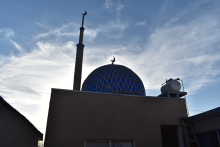
Anyone crossing the U.S.-Mexico border faces a journey fraught with violence and danger. But for women and children, that journey is even more treacherous. Not only are many fleeing violence at home — including gender-based violence — they also experience higher rates of violence en route. Torture, mutilation, sexual violence, femicide,disappearances, and additional health complications are common occurrences for female migrants making their way north.
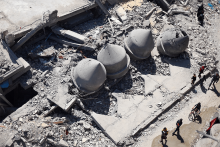
Palestinians in Gaza held the first Friday prayers of Ramadan outside the ruins of a mosque leveled by Israel’s offensive, one of hundreds the Hamas-run authorities say have been damaged or destroyed by Israeli attacks since October.

For many Christians in the West, Advent is a time of preparation infused with prayer, anticipation, and reflection. This year, Advent is painfully marked by more than 18,000 Palestinian deaths — including more than 7,000 children — as a result of Israel’s brutal military retaliation for the Oct. 7 Hamas attack. But the violence stretches beyond the borders of Gaza and the West Bank.
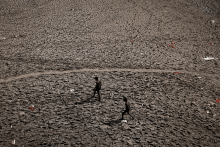
Christian, Muslim, and Jewish leaders joined United Nations officials on Monday in urging financial institutions to stop bankrolling activities that are driving climate change, including ending support for new fossil fuel projects.
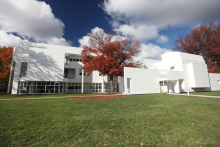
Joel Lohr, the president of soon-to-not-be “Hartford Seminary” sat with Sojourners’ assistant news editor Mitchell Atencio in late September to explain why the school is changing its name and what that change says about the future of theological education — and the church — in the United States.

On Sept. 15, 2001, Balbir Singh Sodhi, a Sikh man, was killed while he was planting flowers at the gas station he owned in Mesa, Ariz., becoming the first victim of post-9/11 hate crimes. For then-college student Valarie Kaur, the murder of “Balbir Uncle”— as he is known to Kaur and others in the Sikh community — was a pivotal moment.
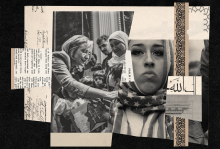
EXCEPT FOR ABRAHAM LINCOLN and Thomas Jefferson, every president of the United States was or is a professing Christian.
Only in the case of John F. Kennedy, it seems, has a president’s Christian faith counted against him in the opinion of a significant number of citizens, and in Kennedy’s case it was because he was Catholic rather than Protestant. The Christian belief of public officials in any branch of national, state, or local government hardly ever raises concern among the U.S. public. But the opposite is true when it comes to Muslim officials.
Many conservative Americans say they fear that the U.S. will become a nation influenced by Islamic tenets instead of Christian ones. Commentators on Fox News often express alarm about sharia (Islamic law). Jeanine Pirro, host of the network’s Justice with Jeanine Pirro, accused Rep. Ilhan Omar, D-Minn., a Muslim woman of Somali descent, of supporting Islamic rule in the United States. Omar and Rep. Rashida Tlaib of Michigan are the only two Muslim women ever elected to Congress, and two of the three Muslims ever to serve in the U.S. legislature; Twitter users criticized Omar for wearing a hijab and Tlaib for wearing, at her congressional swearing-in, a traditional Palestinian dress called a thobe, made by her mother. Another Fox News host, Pete Hegseth, said that, based on how Tlaib “talked about President Trump having a hate agenda, I could, therefore, look at her and say that she has a Hamas agenda.” The Associated Press had to debunk the claim that Tlaib’s thobe was a “symbol of Hamas terrorists,” a sign that many Americans may have believed it to be true.
The alienation and hate go even further. A Florida Republican politician said in a fundraising email that falsely claimed that Omar worked for the nation of Qatar, “We should hang these traitors where they stand.” Another man called Omar’s office and said he would “put a bullet in her skull.” Following the Jan. 6 insurrection at the U.S. Capitol, when lawmakers were still in the building trying to certify President Joe Biden’s election, Tlaib discussed on the House floor her constant fear due to the death threats she regularly receives.
“I worry,” she said, “every day.”
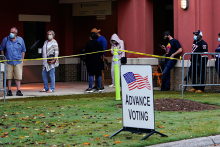
The Council on American-Islamic Relations of Minnesota has accused a private security company of violating the Voting Rights Act of 1965 by hiring ex-U.S. military Special Operations soldiers to patrol polling places. The company, Atlas Aegis, posted a job listing in early October looking for former Special Operations personnel to “[staff] security positions in Minnesota during the November Election and beyond to protect election polls.”
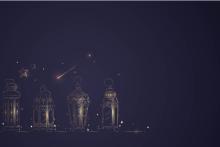
In years past, I’ve invited my non-Muslim friends and community members to visit my mosque for interfaith Iftars. These were opportunities to discuss similarities in fasting across Muslim, Christian, and Jewish traditions, as well as chances to share food and friendship. Now, these interfaith events are impossible. But there are still ways to come together in friendship and solidarity for Muslims during COVID-19 Ramadan.
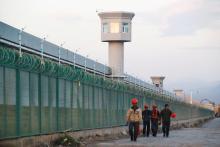
The Congressional-Executive Commission on China released a report last week in conjunction with the bill’s unveiling, saying that Xinjiang authorities are “systematically forcing predominantly Muslim ethnic minorities, including Uyghurs, Kazakhs, and others, to engage in forced labor.”
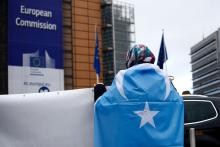
In February 2017, Kashgary and her 53-year-old mother Sureyya co-founded Ana Care & Education, a Uyghur language school in Fairfax. Every Sunday, children and teenagers attend lessons on Uyghur language, culture, history, dance, and more.

Tit-for-tat killings had started between Christians and Muslims in Jos. In Muslim-dominated areas, Muslims roamed the streets and singled out Christians. In Christian-dominated areas, the Christians retaliated with killings Muslims. Cars, houses, and churches were burned to the ground.

As I write, thousands of Muslims families in Hyderabad have been cordoned off and interrogated for identity documents for themselves and their children. Concurrently, Modi’s BJP has forcefully stripped the predominantly Muslim Jammu and Kashmir of their autonomy and has shut off the internet and phones in the area with plans for ‘deradicalization camps’ similar to the Uighur detention centers.
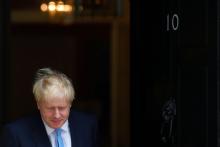
Mahmood explained that issues such as increasing wealth inequality, and the scapegoating of migrants and refugees, set against the backdrop of the migration ‘crisis’, have led to increasing hostility and incidents of hate crime under the Tories — majority white (97 per cent) and male (71 percent) — members or supporters of U.K.’s Conservative Party.
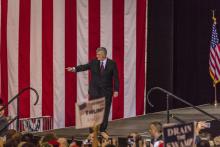
To be sure, Muslim women are among the survivors of sexual assault and violence. But narratives of oppressed Muslim women suffering from a violent and sexually abusive religion have often functioned as a distraction, a means of keeping the attention of our elected leaders on the presumably greater threat posed by lecherous Muslim men so that they need not come to terms with the full extent of the physical and sexual abuse women in the United States experience, nor with the ways white evangelicals contribute to the conditions facilitating this abuse.
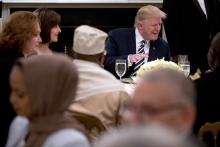
By defining Muslims as future citizens in the 18th century, in conjunction with a resident Jewish minority, Jefferson expanded his “universal” legislative scope to include every one of every faith.

LONG BEFORE Boko Haram emerged in 2002, my home country of Nigeria was polarized along religious and ethnic lines by politicians who sought to pit one group against another. Disputes about religious freedom, resource control, and citizenship led to violent conflicts at the local and state levels. Many religious sites were desecrated.
Nigeria, the most populous country in Africa and seventh most populous worldwide, is fondly referred to as “the giant of West Africa.” It has the largest economy on the continent and is incredibly diverse in ethnicity and religion. Half of Nigeria’s population is Christian, living mostly in the southern part of the country, and the other half is Muslim, living primarily in the north.
In 2009, while I was pastor of a Catholic parish in Kano State, in northern Nigeria, a bloody confrontation broke out between the Nigeria Police Force and Boko Haram about 300 miles away in the northeast part of the country. Two years later, I was caring for eight families who had fled to the city of Kaduna, seeking safety from Boko Haram attacks. As I listened to their stories, I could not help but think of my own family’s displacement after riots in 1980 and 2002. Our congregation and my own family had been directly impacted by violent ethno-religious conflicts.
But the norm in the part of northern Nigeria where I grew up was very different from that. Christians and Muslims lived together as neighbors and friends. Young people bonded as they played sports with one another. Muslims and Christians exchanged greetings and attended one another’s naming and marriage ceremonies. We rejoiced and grieved together.
This included Nasiru, Ahmad, and Abdul, three of my Muslim neighbors who joined Boko Haram in 2009. They were attracted to Boko Haram because of their frustration with overwhelming socioeconomic inequality that had left them impoverished and unemployed. From their perspective, the ostentatious lifestyle of the political class indicated corruption, poor governance, and improperly managed resources. Boko Haram seemed to promise justice.
“We feel hopeful when the preacher reminds us that those who rob us of our livelihood will be judged and damned,” I remember Nasiru saying to me.

“There are hundreds of web pages of Holocaust denial” in the Arab world “but almost nothing in Arabic that combats this denial,” Saadoun said. “We’re teaching Arabs about their own history.”
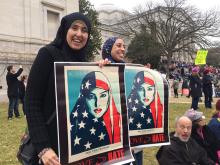
“I really feel like activism is a form of sharing that love that God has given you,” she said. “Realizing that this world is made for all of us is something that’s transcending, and we have to inspire each other.”
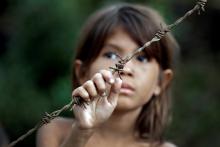
The refugees drowned in heavy seas off Bangladesh late on Thursday, part of a new surge of people fleeing a Myanmar military campaign that began on Aug. 25 and has triggered an exodus of some 502,000 people.